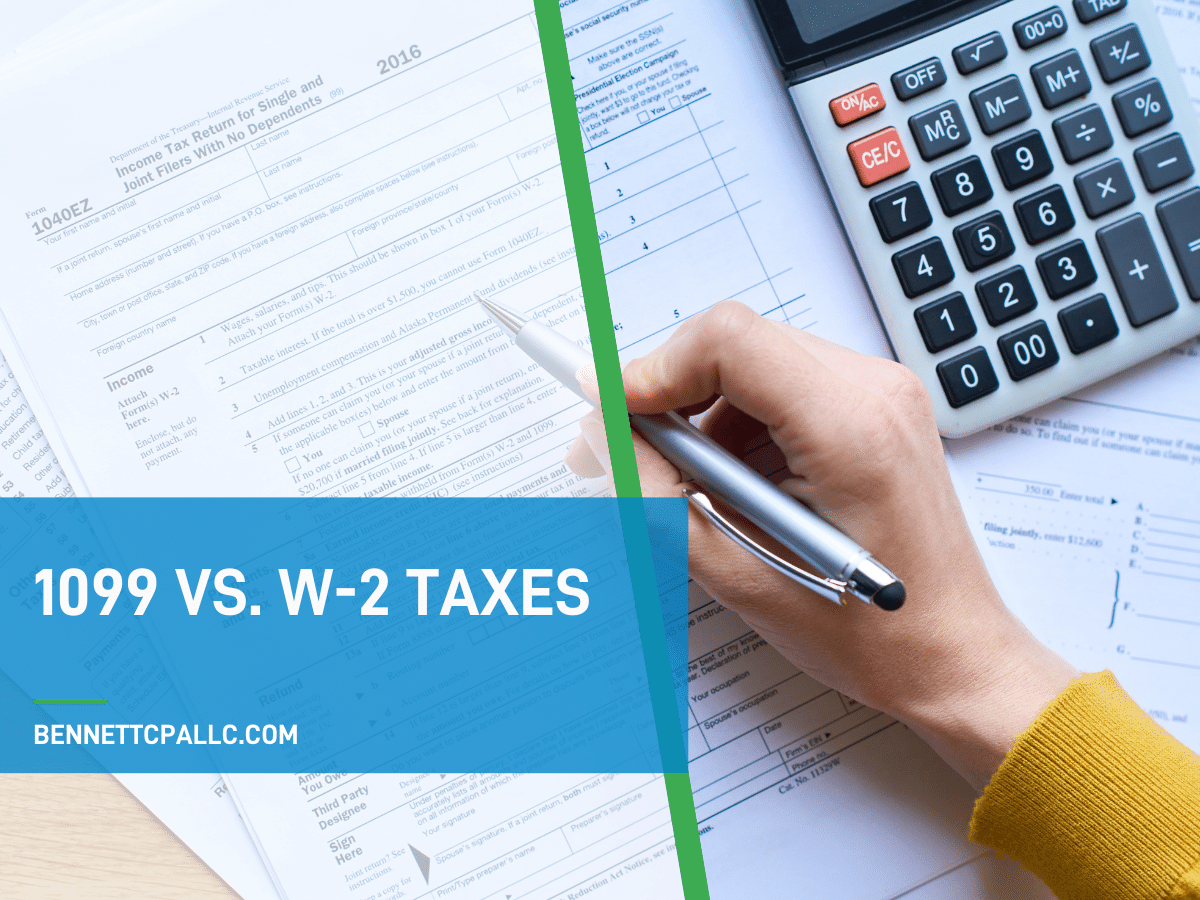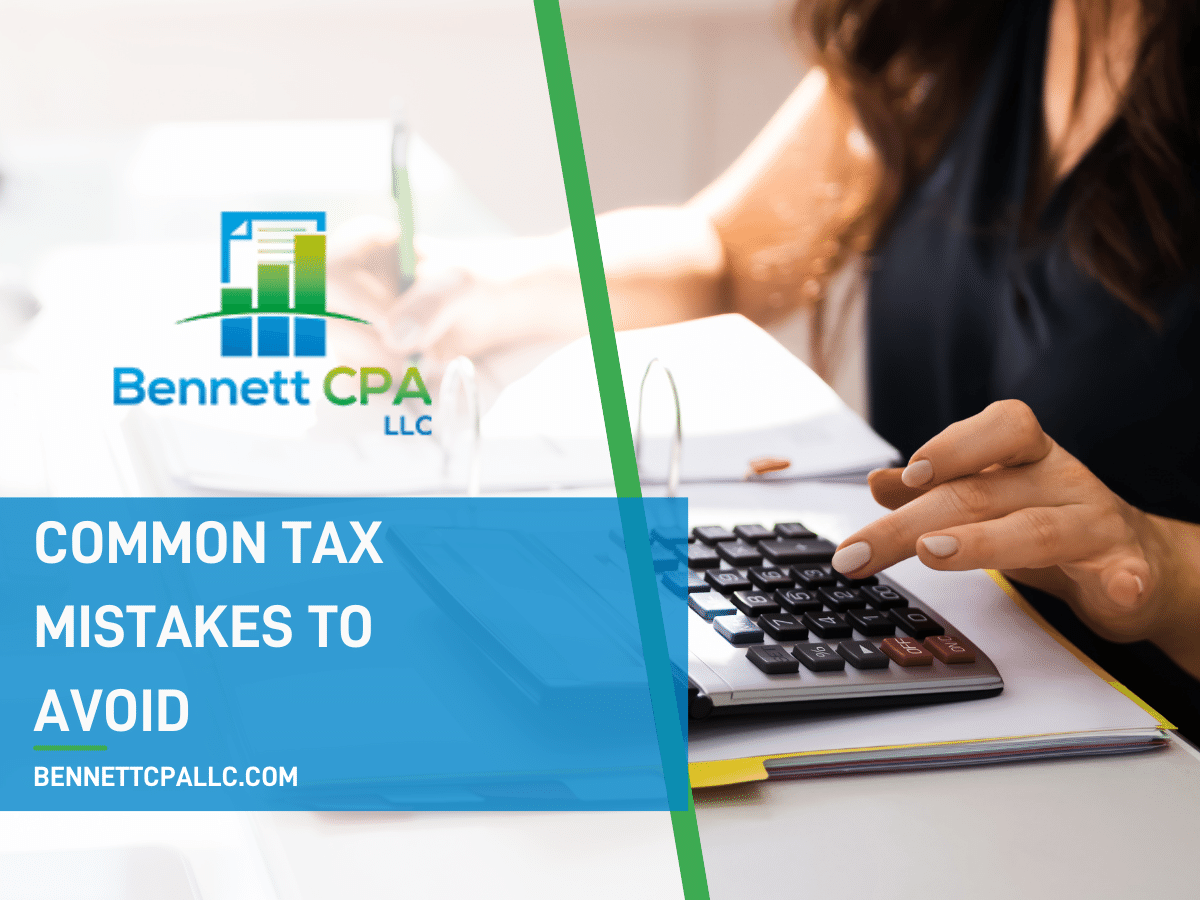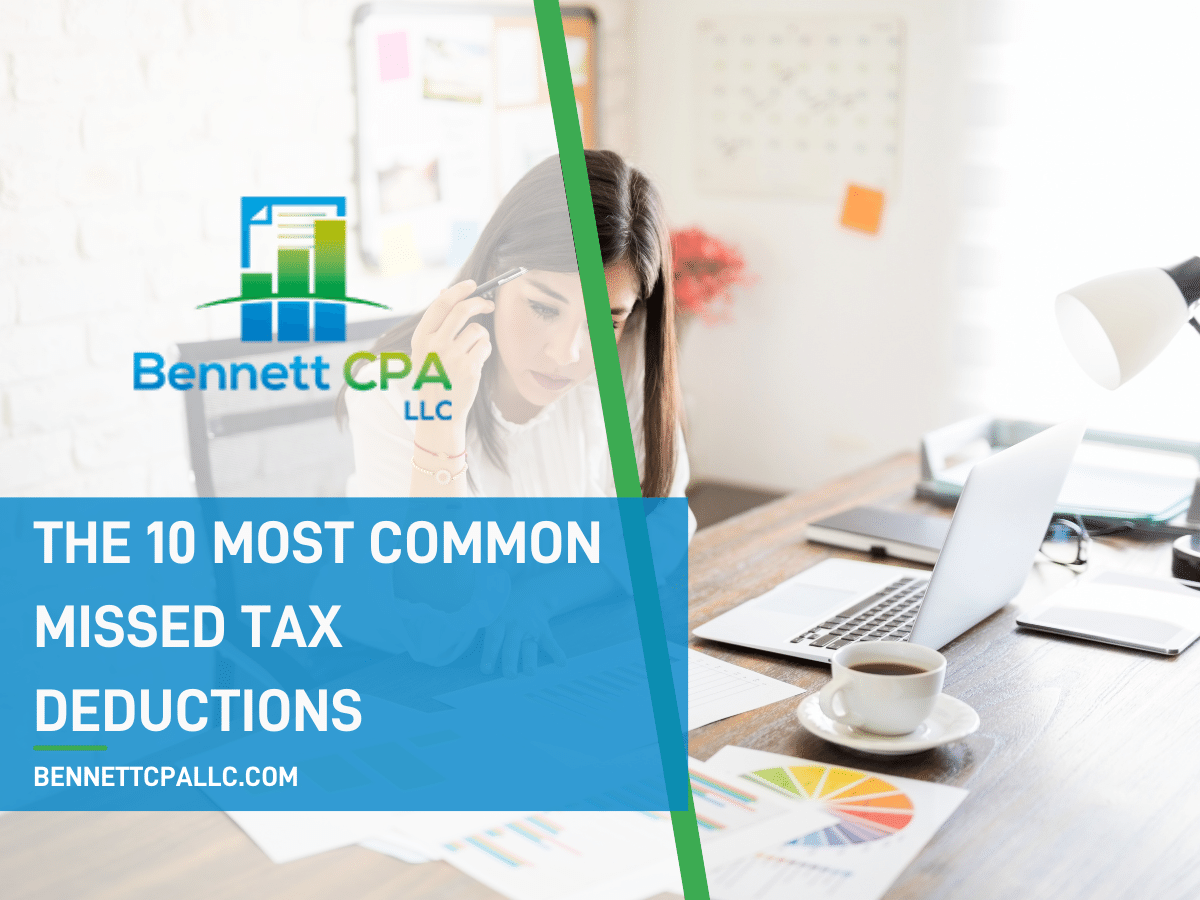There are many aspects that will affect how you file your taxes, including what category of worker you fall under. At Bennett CPA, we are passionate about helping the residents and business owners of Colorado Springs file their taxes efficiently. One of the biggest questions people have when it comes to their taxes is understanding the differences between the taxes of an independent contractor and an employee. We are here to help walk you through the differences between an independent contractor’s taxes and an employee’s taxes.
Differences Between 1099 Contractors And W-2 Employees
The type of tax form that will need to be completed depends on if workers are independent contractors or employees. Self-employed workers, also known as independent contractors, must fill out a 1099 form to report their annual income. On the other hand, employees are given a W-2 filled out by their employer that includes all the required information needed to report your wages and payroll taxes.
1099 Contractor
Generally, a business will hire a 1099 contractor to complete a specific task or work on a specific project. They will define the terms in a written contract, and the 1099 workers will decide when, how and where they work. The only requirement is that they complete the tasks at hand. In certain companies, independent contractors can even hire their own workers to help them complete their given tasks. 1099 contractors also have the freedom to work for multiple businesses at once.
Because independent contractors are self-employed, they pay their own taxes and do not receive company benefits. This means employers do not need to withhold or file any payroll taxes for independent contractors, or offer them the same benefits a W-2 employee would receive.
W-2 Employee
A W-2 employee is a direct employee of a business. This is the default classification for any worker who does not classify as a 1099 contractor. Employees can be part-time or full-time workers, and must work according to the business’ schedule and policies. As a W-2 employee, individuals are eligible to participate in employee benefit programs. Most companies offer W-2 employees health insurance, PTO and overtime pay. Companies must also pay W-2 employees at least minimum wage.
Employers are required to withhold Social Security taxes and Medicare taxes, as well as file payroll taxes. If you are a W-2 employee, your employer is responsible for providing you with any equipment that is necessary to complete your job.
Tax Differences Between 1099 And W-2
Tax requirements vary between 1099 employees and W-2 employees. Businesses pay 1099 contractors per the terms of their contract, and they are not required to pay taxes on behalf of the independent contractor. At the end of the year, the independent contractor will receive a 1099 tax form that they must complete themselves.
W-2 employees, on the other hand, receive a regular wage and employee benefits. Their employers are responsible for withholding taxes and reporting them to the IRS. Businesses must withhold federal income taxes, unemployment taxes, Social Security taxes and Medicare taxes on behalf of their employees.
Prepare Your Taxes And More With Bennett CPA
At Bennett CPA, we provide high-quality individual tax services and business tax services for the community. We can help you efficiently file your individual taxes, whether you are an independent contractor or an employee. Our priority is always to maximize your deductions while minimizing your liability. In an effort to help educate others as much as possible, we frequently write blogs to help answer the most common tax questions. If you have any other questions regarding your individual taxes, or would like to set up an appointment, contact us today.





